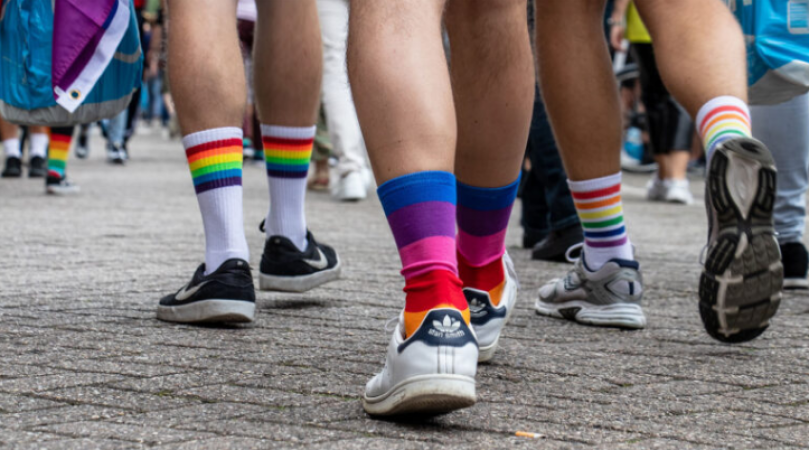
United States: An Oregon federal district court ruled late Thursday that LGBTQ students who claim they were discriminated against at their religious universities have no legal recourse.
The judge dismissed the class-action lawsuit on behalf of nearly 40 current and former students from religious schools across the country, who filed it in March 2021.
Hunter v. US In the Department of Education, the department was accused of failing to prevent discrimination against students attending LGBTQ+ religious schools.
Also Read: Cardinal Pell's covert memo denounces Francis as a "catastrophe"
The exemption for religion from Title IX, the civil rights law that prohibits discrimination on the basis of sex, sexual orientation and gender identity, is at issue. The plaintiffs claimed that the exemption enables religious schools to treat them unfairly.
The lawsuit, which could be the beginning of a number of class actions against religious universities, is the result of a larger reckoning that has taken place in the area of religious higher education over the past two years.
Yeshiva University students file their lawsuit against the Orthodox Jewish school for refusing to recognize an LGBTQ student club, and LGBTQ students at other universities hold walkouts, month-long sit-ins and protests in support of LGBTQ-inclusive policies . For the students and staff of the University.
The plaintiffs "satisfactorily allege" that the religious exemption had harmed them, according to Judge Ann Aiken of the US District Court for the Federal District in Eugene, Oregon.
According to Aiken, "The court reviewed nearly 400 exhibits and thousands of pages of declarations from individual plaintiffs regarding the discrimination they experienced in their religious schools based on their sexual orientation and gender identity."
Also Read: Know when is Lohri and what is the tradition of celebrating
"This treatment ranged from academic exclusion and denial of student housing, to forced conversion therapy, to the prohibition of forming LGBTQ+ support groups on campus."
Aiken cited earlier federal court rulings that held that religious exemptions are constitutional, rejected the idea that such exemptions operate with intent to discriminate, and ruled that the plaintiffs had "raised a legal claim on the merits of their action." The elements necessary to do so were not alleged."
Plaintiffs "do not clearly establish that the religious exemption was motivated by any unlawful purpose, that Congress was 'solely' motivated by such unlawful purpose," Aiken wrote.
Paul Southwick, the non-profit director of the lawsuit, expressed appreciation that the court recognized the harm caused to LGBTQ students, but regretted the fact that the court did not uphold plaintiffs' rights to protection from discrimination under federal law.
Also Read: Israel kills Palestinian in West Bank raid
"The judge has repeatedly acknowledged that the government is partly to blame for students' fair treatment and lack of access to educational opportunities. We must hold onto that. The saving grace, according to Southwick, is that.
The plaintiffs and their attorneys are arguing their options for an appeal in a separate statement.
The three Christian colleges that joined the lawsuit as co-respondents were represented by the Alliance Defending Freedom, which hailed the decision as a victory for religious freedom.
Senior attorney David Kortman said in a statement to RNS that Title IX, which regulates schools receiving federal funding, "explicitly protects the freedom of religious schools to live out deeply and faithfully held beliefs." Is."
"The Court correctly found that none of Plaintiffs' claimed rights were violated by the religious freedom exemption in Title IX." According to the ADF, the decision upholds the right of religious universities to accept federal funds in the form of student financial aid.
Because of their sexual orientation or gender identity, the plaintiffs claimed in the lawsuit that their applications were rejected, or they were harassed, fired, disciplined for social media posts, or prohibited from dating same-sex people was done, among other things.
Elizabeth Hunter, one of the plaintiffs in the case, described the decision as "deeply disappointing" and said, "We deserve better, our country deserves better, and history deserves better." An example should not be set.
Also Read: Australian Cardinal George Pell, 81, died after being cleared of child sex abuse charges
Counsel for the Department of Education argued that any harm to students was the fault of the religious schools, not the department. Additionally, he argued that many of the students affected at the schools were no longer enrolled there.
Noting that many of the Plaintiffs have either left educational institutions - through graduation or by some other means - or are no longer seeking attendance there, Defendants argue that the Plaintiffs have failed to show that Federal District Judge Aiken As per reports, his injuries are treatable.
The Council for Christian Colleges and Universities, a number of religious institutions, and other parties joined the lawsuit and jointly requested that it be dismissed with the Department of Education.
Plaintiff Veronica Bonifacio Penales stated in a press release that "this is not the end." If anything positive comes out of this, it will be the beginning of a student-led movement that will be opposed by those who were supposed to be looking out for us.